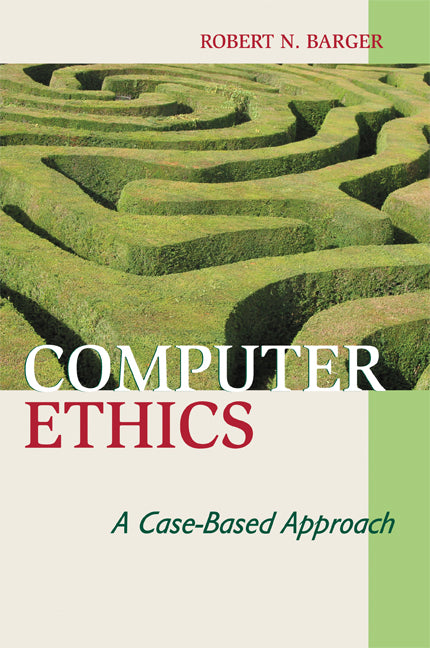Freshly Printed - allow 8 days lead
Couldn't load pickup availability
Computer Ethics
A Case-based Approach
This book teaches computer ethics for computer science or philosophy undergraduates. Includes a worksheet of key questions used in solving computing dilemmas.
Robert N. Barger (Author)
9780521709149, Cambridge University Press
Paperback, published 9 June 2008
264 pages, 11 b/w illus.
22.8 x 15.2 x 1.4 cm, 0.36 kg
'The book is a work of merit. I think it would be an excellent choice for a course in computer ethics, privacy or security.' James Van Speybroeck, St Ambrose University
Teaches students how to solve ethical dilemmas in the field of computing, taking a philosophical, rather than a legal, approach to the topic. It first examines the principles of Idealism, Realism, Pragmatism, Existentialism, and Philosophical Analysis, explaining how each of them might be adopted as a basis for solving computing dilemmas. The book then presents a worksheet of key questions to be used in solving dilemmas. Twenty-nine cases, drawn from the real-life experiences of computer professionals, are included in the book as a means to let students experiment with solving ethical dilemmas and identify the philosophical underpinnings of the solutions.
1. Introduction
2. The computer as a humanizing agent
3. Philosophic belief systems
4. A philosophic inventory
5. The possibility of a unified ethical theory
6. The ethical decision making process
7. Psychology and computer ethics
8. The computing field as a profession
9. Computer-related codes of ethics
10. Computer ethics and international development
11. Robotics and ethics
12. Theft and piracy concerns
13. Cases concerning theft and piracy
14. Privacy concerns
15. Cases concerning privacy
16. Power concerns
17. Cases concerning power
18. A miscellaneous collection of cases
19. Parasitic computing case
Appendix. Topics for presentations, discussions, and papers.
Subject Areas: Human-computer interaction [UYZ], Ethics & moral philosophy [HPQ]


